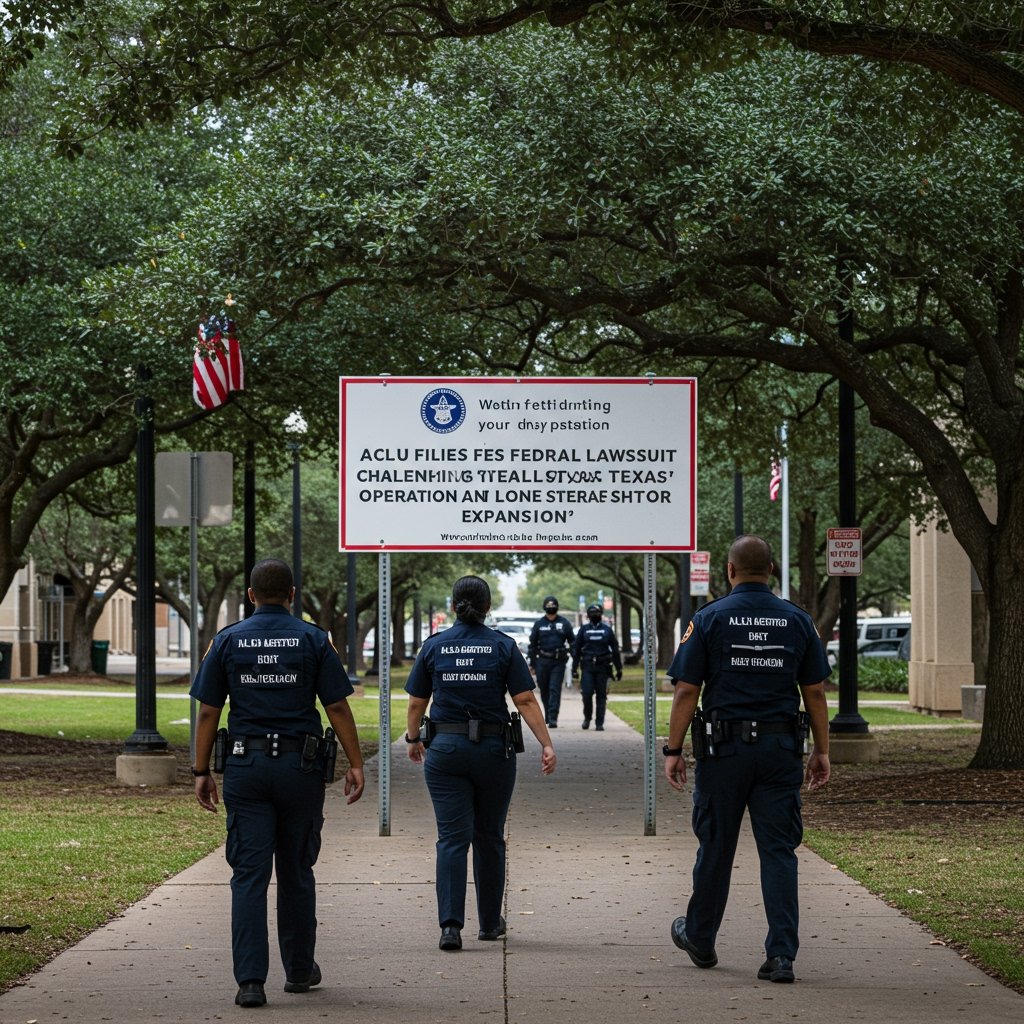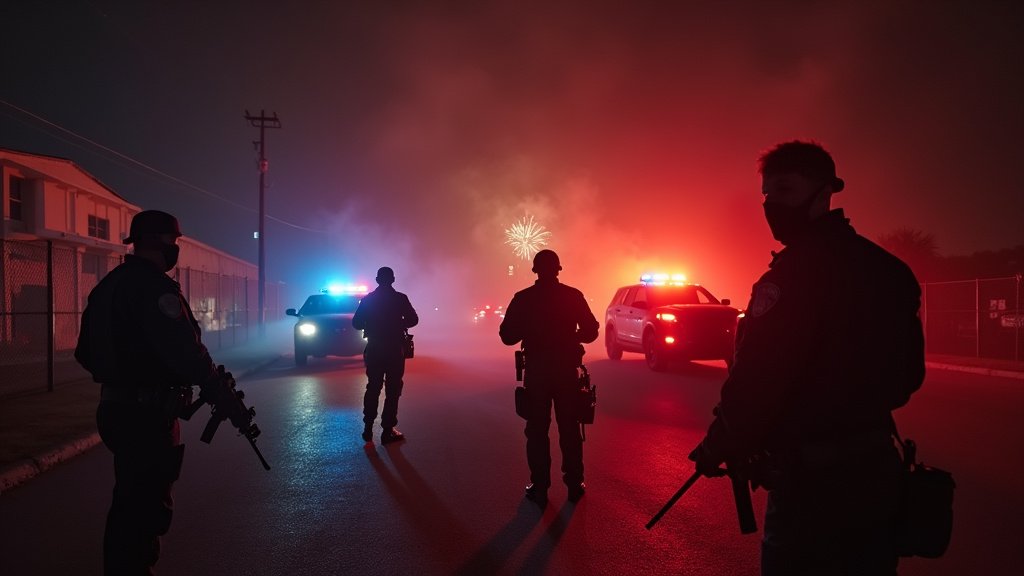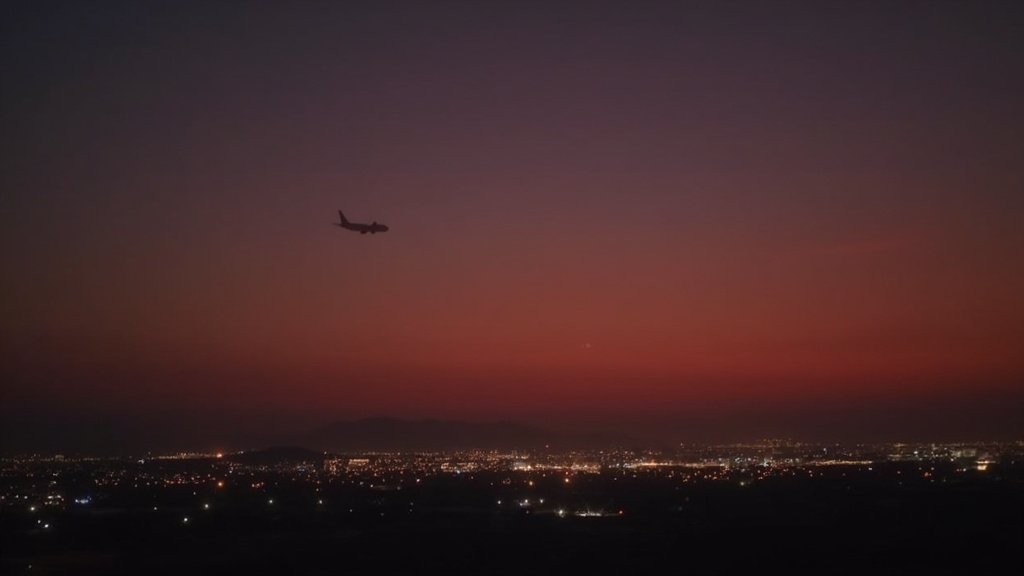Federal Lawsuit Challenges Texas’ Expanded Border Security Initiative
A significant legal challenge has been mounted against the State of Texas’ extensive border security efforts, specifically targeting Governor Greg Abbott’s expanded “Operation Lone Star 2.0.” On May 19, 2025, the American Civil Liberties Union (ACLU) of Texas filed a lawsuit in the Western District of Texas federal court, located in Austin. The suit contends that the state’s far-reaching program oversteps constitutional boundaries, primarily by encroaching upon the exclusive authority of the federal government in matters of immigration and border control.
The ACLU’s filing lays out a series of allegations, asserting that Operation Lone Star 2.0, in its current expanded form, not only interferes with federal immigration operations but also violates the fundamental civil rights of individuals encountered within the state, including both migrants and long-term residents near the border. This legal action marks a critical escalation in the ongoing tension between Texas and the federal government regarding the management and security of the U.S.-Mexico border.
The Core Claims: Federal Authority and Civil Rights
The lawsuit brought by the ACLU of Texas centers on the principle that the U.S. Constitution grants the federal government plenary power over immigration policy and enforcement. The plaintiffs argue that Operation Lone Star 2.0, through its various components involving state law enforcement, military personnel, and judicial actions, effectively attempts to create a parallel state immigration system. This, they contend, is a direct usurpation of federal power, citing Supreme Court precedent that affirms the federal government’s dominance in this arena.
Specific allegations raised in the lawsuit detail instances where state actions under Operation Lone Star 2.0 allegedly conflict with or impede federal immigration processing, apprehension protocols, and removal proceedings. The suit suggests that Texas is implementing state laws and directives that are either preempted by federal statutes or are being applied in a manner that infringes upon federal responsibilities.
Furthermore, the lawsuit raises serious concerns regarding the civil rights of individuals impacted by the state initiative. The ACLU alleges that Operation Lone Star 2.0 has led to violations of rights guaranteed under the U.S. Constitution, including potentially unlawful arrests, prolonged or improper detentions, lack of due process, and discriminatory treatment. These alleged violations affect not only migrants who have crossed the border but also residents, including U.S. citizens and legal residents, who live in or travel through the operational areas designated under the program. The lawsuit seeks injunctive relief to halt aspects of Operation Lone Star 2.0 that it deems unconstitutional and in violation of federal law and civil liberties.
Texas’ Stance: Defending State Sovereignty
In response to the lawsuit, Governor Greg Abbott’s office issued a swift and sharp statement. The governor’s office categorically dismissed the ACLU’s lawsuit, labeling it “baseless.” The statement reiterated the state’s long-held position that it possesses the constitutional authority to secure its border, particularly in the face of what the state characterizes as a failure by the federal government to adequately enforce immigration laws.
The Texas government’s defense frequently invokes Article I, Section 10, Clause 3 of the U.S. Constitution, known as the Compact Clause or, as often cited in this context, the section allowing states to engage in war or self-defense when actually invaded or in such imminent danger as will not admit of delay. Governor Abbott and his administration have consistently framed the situation at the border as an “invasion,” arguing that this constitutional provision empowers Texas to take extraordinary measures to protect its territory and citizens.
The state maintains that Operation Lone Star 2.0 is a necessary response to an unprecedented crisis and that its actions are within the scope of its sovereign powers to defend its borders and enforce state laws, even those that may intersect with immigration matters. The governor’s office asserts that the state is simply stepping in to perform duties that the federal government has neglected, and therefore, the ACLU’s claims of federal overreach are unfounded.
Context: A Deepening State-Federal Divide
The filing of this lawsuit in the Western District of Texas federal court in Austin is not an isolated event but rather the latest and perhaps most significant development in a long-standing and increasingly contentious dispute between the State of Texas and the federal government over border policy and immigration enforcement. The tensions have manifested in various forms, including legal battles over physical barriers like razor wire and buoys in the Rio Grande, disputes over access to the border by federal agents, and conflicting directives regarding the handling of migrants.
Operation Lone Star, initially launched in March 2021 and subsequently expanded, involves deploying Texas National Guard troops and Department of Public Safety troopers to the border. The program has engaged in various activities, including apprehending migrants for state criminal trespass charges, constructing border barriers, and establishing state-run processing and detention facilities. The “2.0” designation often refers to the program’s expansion in scope, funding, and operational intensity.
This legal battle initiated on May 19, 2025, pushes the state-federal conflict into a significant new phase. While previous disputes often focused on specific tactics or resources, the ACLU lawsuit directly challenges the fundamental legal underpinnings and constitutionality of the expanded state operation itself. The outcome of this case in the federal court could have profound implications, potentially redefining the boundaries of state authority in areas traditionally governed by federal law.
What Lies Ahead
The lawsuit is expected to proceed through the federal court system, likely involving extensive legal arguments, evidence presentation, and potentially requests for preliminary injunctions to halt certain state actions while the case is pending. Given the high-stakes nature of the dispute and the constitutional questions involved, it is anticipated that the case could eventually reach the Fifth Circuit Court of Appeals and possibly the U.S. Supreme Court.
The legal arguments will likely delve deep into constitutional law, particularly the Supremacy Clause, which establishes that federal laws are the supreme law of the land, and the extent to which state actions are preempted when they intersect with federal authority. The court will also weigh the allegations of civil rights violations against the state’s asserted authority to defend itself.
This lawsuit represents a critical juncture, forcing a judicial examination of the legality and scope of state-level border security initiatives like Operation Lone Star 2.0 amidst a complex and politically charged immigration landscape. The resolution will be closely watched by policymakers, legal experts, and the public across the nation.






